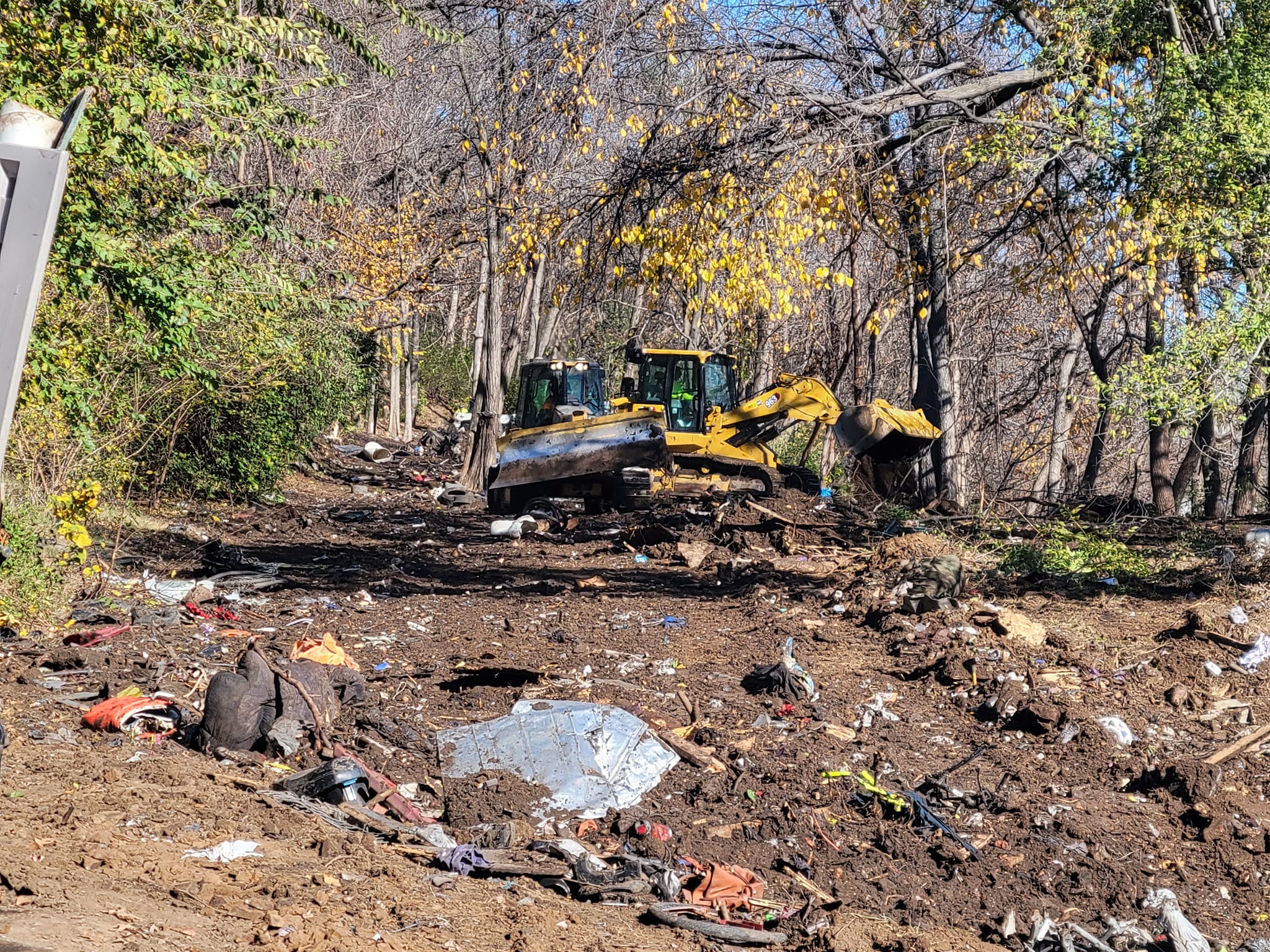 By Paul Thompson
By Paul Thompson
Northeast News
Airbnb. Life as a musician. Federal authorities. His relationship to infamous Historic Northeast criminal Tyler Sutton. Nothing was off the table for Ross Wright, owner of the controversial Scarritt Airbnb mansion, during a conversation with the Northeast News on Wednesday, February 21.
For many in the Historic Northeast, the story of Tyler Sutton’s run of mayhem is well-trodden territory. The tale spun by Ross Wright, however, adds another unique and distinctly unfiltered perspective to the entire affair.
Wright called the Northeast News office from a Los Angeles area code on the evening of Tuesday, February 20. The call was in response to a prior inquiry related to Kansas City, Missouri’s proposed short term rental ordinance, and specifically about his Airbnb listing in the Scarritt Renaissance neighborhood. Wright’s Airbnb, a five-bedroom, 3.5 bath mansion in a historic district that’s zoned R-7.5, just so happens to be one of the zoning districts (along with R-10) that Kansas City is looking to ban short-term rentals in. It was also the former home and criminal headquarters of Tyler Sutton.
There are ways for Airbnb hosts currently in operation to be grandfathered in under the proposed new ordinance, but there also remain barriers. For one, the proposed city ordinance could potentially set a limit for short term rentals of eight guests under one roof at a time. The Airbnb listing for the Scarritt Airbnb mansion currently states that up to 14 guests can be accommodated. For another, some neighbors have gone on the record opposing Wright’s use of the home as an Airbnb. Parking concerns and the noise generated by those large groups are particular concerns of adjacent property owners.
Wright acknowledged Wednesday that some guests have thrown parties on the premises.
“Sometimes people throw parties there; I think that’s what pisses off the neighbors,” Wright said. “I’ve been trying really hard to limit that behavior.”
“I think he’s just a lonely guy who gets pissed off when people are having fun,” Wright added, of a neighbor he’s heard from personally.
While Wright says he would prefer to have amicable relationships with his neighbors, he’s also adamant that the house is in substantially better shape than when he acquired it from the aforementioned Tyler Sutton. He recalled the drug addicts and police calls that beset the property before he took it over, calling it a “complete wreck” upon acquisition. The issues included broken windows, boarded up doors, wrecked plumbing, and water damage so severe there were holes in the floors.
“It was kind of like somebody handing me a sick puppy,” Wright said. “Do you just take it to the vet and put it to sleep, or try to heal it?”
In this case, Wright thought he could heal it. He estimates that he poured $200,000 into the house before ever renting it out as an Airbnb. That level of effort – by an out of town property owner, no less – did raise the question: why would he purchase a house that needed hundreds of thousands of dollars worth of repairs? That’s another story, and according to Wright, it all comes back to Sutton.
Before his forays into the Kansas City real estate market, Wright says that he came up as a “working class” musician in California. He toured with bands as a bass guitarist, worked as a session guitarist in the studio, and followed his passion as an orchestra conductor, composer, and arranger.
Wright’s interest in Kansas City began when he cashed in equity on his California home and began a national search for an affordable income property. He ultimately settled on Kansas City, he says, because he thought the houses looked cool. Sutton, Wright added, helped him renovate homes and served as a property manager.
“I met this guy named Tyler Sutton, who’s now in jail. Back then he was a little quirky, but he didn’t seem like a criminal,” Wright said. “He was a contractor, and quite frankly, he did pretty decent work. I ended up buying some houses, and he ended up fixing them up. At some point, he bought (the Scarritt Airbnb mansion).”
Within a couple of years of Sutton’s purchase, he called up Wright and said he needed to refinance the house. At the time, Wright says, he was in a position to acquire it. Sutton wanted the pair to put a corporation together, but Wright was uncomfortable with that plan. Still wanting to help Sutton, he came up with an alternative idea.
“I can lease-option it to you,” Wright recalled. “If you say it’s worth what it’s worth, you’ve got a year and a half to pay it back.”
If Sutton couldn’t make the payments, then the home would become Wright’s. That’s exactly what happened.
“Quite frankly, the last choice I really wanted was to have it default it back to me,” Wright said. “It was not too long after that where things in his world really started to fall apart.”
Wright says that he eventually received a call from detectives asking about his relationship to Tyler Sutton. He told them he’d be happy to talk, and asked where they might want to meet up. Wright’s house would work fine, they replied. They were already there.
“Of course they were very suspicious at first, because that’s their job,” Wright said. “But it became very clear that I was more of a victim than a perpetrator.”
In fact, Wright said that the investigators became allies for him, even helping to prove that Sutton had been using Wright’s name to register for utility bills that were never paid. Before then, Wright says he had been insulated from the worst of Sutton’s behavior. Afterwards, the tenacity of the federal investigators made the severity of Sutton’s actions crystal clear.
“Looking back, you can totally see how frustrated and done they were with these idiots who were living there,” Wright said.
With Sutton gone, Wright took over the unenviable task of bringing the Scarritt Airbnb mansion back from the brink. Initially, Wright said he received a warm reaction from neighbors who saw him putting work into a dilapidated home that had once received 73 calls for service by KCPD in a single year.
“At first, the neighbors all loved me because I was fixing the place up,” Wright said.
With hundreds of thousands of dollars invested into the renovation, Wright began looking for ways to maximize his income. The short-term rental platform Airbnb proved to be an attractive revenue source.
“The reason that Airbnb is good for me is that I’m able to take that money and keep improving the house,” Wright said. “There’s plenty of things that need work; it’s a 120-year-old house. It’s just a big money pit.”
Wright also revealed uneasiness about the surrounding neighborhood, saying that he didn’t think a family would be interested in paying fair market value for a home – however nice – that was located in the urban core. With Airbnb, though, guests don’t typically worry about the socioeconomic realities of the neighborhood.
“You’re close enough to everything that anybody who is coming for a convention or whatever, it’s a fairly central location. For them, it works really well,” Wright said. “Point being, the people who are coming and going don’t have to concern themselves with that, but someone who lives there would.”
Airbnb provided another bonus for Wright: with such short stays, there was little opportunity for another Tyler Sutton to trash the place.
“Because it turns over all the time, nobody has a chance to really f**k it up too badly,” Wright added.
When confronted with the potential regulations that could fall upon the short-term rental industry if the KCMO City Council passes the ordinance its currently mulling, Wright said that he’d do what he could to properly register the home. When asked whether he thought he could get 55% of adjacent neighbors to approve the use, if the ordinance ultimately requires it, Wright conceded that the “neighbors are hard to read.” But he added that he would likely pursue a special use permit if necessary.
“If they want to run me out of town, then I’d probably have to sell the place. Quite frankly, it would probably be worse,” Wright said. “It went from being the worst, most scary, most fu**ed up house in the neighborhood to being a nice one.”
“I would think there’s a case to be made,” Wright added. “What are the options?”
Wright continued on that line of thinking, suggesting that if he rented the home to long-term renters, the improvements to the property would cease. For now, Wright will continue renting the home as an Airbnb.
“The Airbnb thing, for that neighborhood, is actually really handy,” Wright said. “It’s still the hood.”
He plans to discourage short-term guests from throwing parties on the premises, but concedes that if the money is right, he’ll likely allow it.
“People want to have parties there all the time, and basically I just price them out of it,” said Wright, indicating that he’ll typically ask for as much as an extra $1,000 to host special events at the home. “If I get a couple of those a year, the neighbors can probably handle it and I’ll be well-compensated for it.”
Ultimately, Wright says that he’s simply trying to turn a liability into a profit generator. If issues continue to arise as a result of the guests who stay at his Airbnb, he said he’ll try to smooth them over with neighbors as well as he can.
Wright doesn’t hate the Historic Northeast; in fact, he seems to like it. He ruminates about the potential benefits of a streetcar extension down Independence Avenue, talks about the City’s focus on improving the area, and wonders whether Kansas City University’s expanding campus will bring economic development to the neighborhood. He even says that he’s referred business to his neighbors across the street, the proprietors of the bed and breakfast Inn at 425.
Sure, Wright’s an out-of-town property owner from California, but he doesn’t want his neighbors to hate him.
“I think it’s changing,” Wright said, before pivoting. “I hope I’m not being a dick or anything.”

















